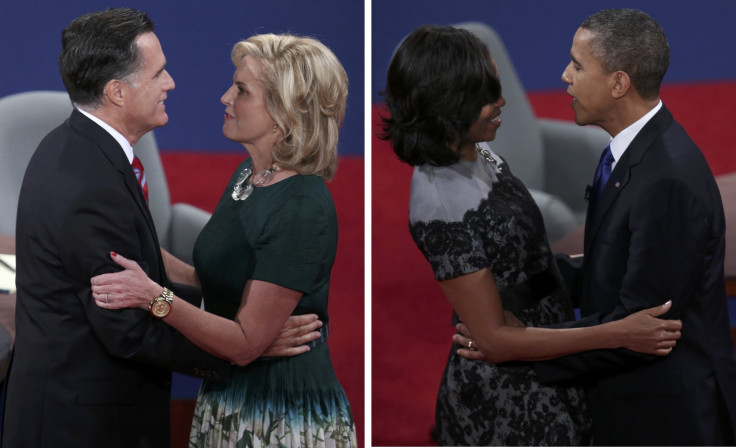Hurricane Sandy Could Throw Presidential Election Off Course

As Hurricane Sandy gets ever closer to hammering the U.S. East Coast, political experts are wondering about the effect the storm may have on the presidential election.
The general elections will be held Nov. 6, only a week after Hurricane Sandy is expected to make landfall in central New Jersey. Because of the storm’s proximity to Election Day, both U.S. President Barack Obama and former Massachusetts Gov. Mitt Romney have canceled and rescheduled events to avoid wasting precious campaigning time.
But the dates and locations of campaign rallies aren’t the only things that Hurricane Sandy could change in the presidential election. If the Frankenstorm becomes bad enough, Democratic consultant Bob Shrum said on CBS News' "Face the Nation," it could change the entire course of the election.
"There's another factor here, which is if this storm is bad enough, and if tens of millions of people are without power, and the seawalls have been breached in New York City, the president's got to get off the campaign trail -- he's got to go run the country," Shrum said. "That leaves Mitt Romney in kind of an odd position at that point, too, because he can't look like he's just campaigning."
If Romney continued to attack Obama in the immediate aftermath of Hurricane Sandy, it could look extremely insensitive to the relief efforts Obama will be carrying out on the East Coast.
According to Shrum, "The only thing Romney can do at this point is go around and give a positive speech about where he wants to take the country. He cannot look like he's attacking the president. He cannot look like he's exploiting this."
Hurricane Sandy may also have a large effect on voter turnout. Maryland already plans to close its early-voting stations on Monday, even though many voters rely on early voting to cast their ballots.
And if Hurricane Sandy does indeed leave millions of people without electrical power, these possible voters may be too concerned with issues at their homes to make it to their polling stations. That scenario could see millions of potential voters staying home rather than casting ballots -- likely for Obama, given the Northeast’s voting history.
"The poll numbers aren't changing that much, and I don't think the storm is going to change that dynamic," Jamie Chandler, a professor of political science at Hunter College in New York, told Reuters, "It's just going to present logistical challenges for the campaign."
© Copyright IBTimes 2024. All rights reserved.






















